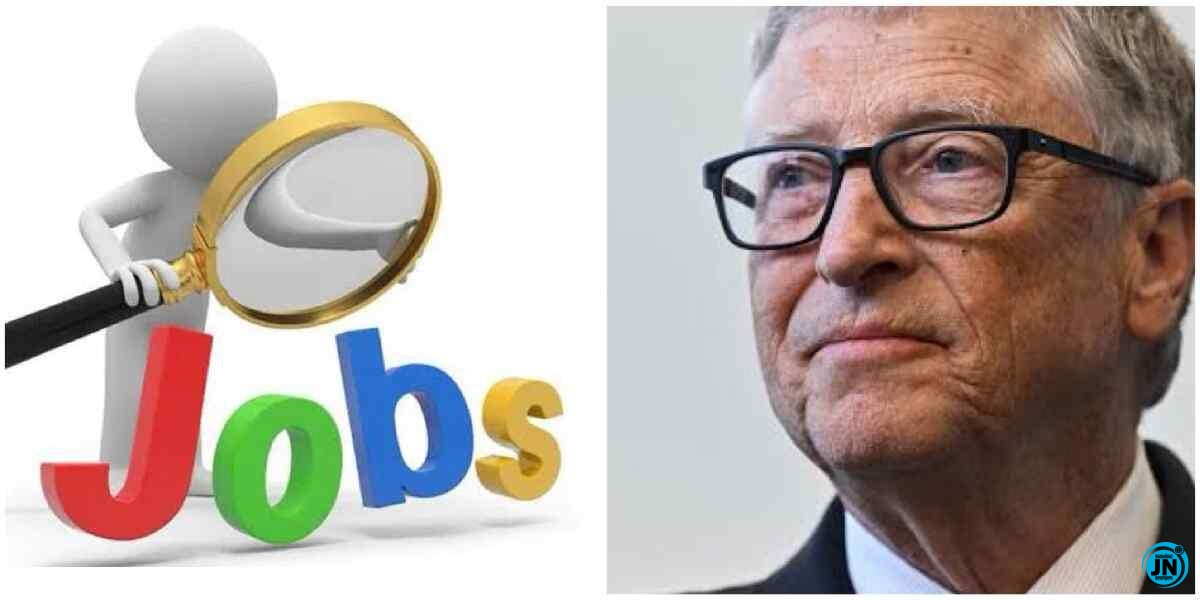
Popular American billionaire businessman, Bill Gates, has weighed in on the growing debate over artificial intelligence (AI) and job displacement, warning that rapid advancements in AI will render many traditional jobs obsolete in the coming years. As AI-powered systems become more sophisticated, automating tasks across multiple industries, concerns about widespread unemployment continue to mount.
However, the Microsoft co-founder and philanthropist believes that despite AI's disruptive impact on the workforce, certain professions will remain irreplaceable—at least for now. In a recent discussion on the future of work, Gates outlined three key professions that he believes AI cannot fully replace due to their reliance on human ingenuity, critical thinking, and problem-solving skills.
Coders:
Bill Gates asserts that coders and software engineers will continue to play a crucial role in AI development, innovation, and oversight. While AI has made impressive strides in generating code through platforms like OpenAI's ChatGPT, Google's Gemini, and other automated coding assistants, these tools still rely on human expertise for accuracy, efficiency, and quality control.
AI can assist in writing and debugging code, but it lacks the precision, creativity, and adaptive problem-solving skills required to build, optimize, and refine complex software systems. Human programmers are essential in ensuring AI models function correctly, addressing security vulnerabilities, and integrating AI with real-world applications. As AI technology evolves, skilled coders will remain in high demand to develop, manage, and enhance AI-driven innovations.
Energy Experts:
The energy sector is another field that Gates sees as resistant to full AI automation. Managing energy sources—whether fossil fuels, nuclear power, or renewable energy—demands a deep understanding of physics, engineering, environmental factors, and regulatory policies. While AI-powered analytics and predictive models can optimize energy consumption and improve efficiency, they cannot replace the decision-making expertise required in this industry.
Energy experts play a crucial role in navigating geopolitical challenges, designing sustainable energy solutions, and responding to unpredictable global energy demands. AI may enhance efficiency in energy production and distribution, but human oversight is indispensable in mitigating risks, adapting to crises, and implementing long-term energy strategies.
Biologists:
Gates also emphasizes that biologists and researchers in the life sciences will remain irreplaceable, as AI alone cannot drive groundbreaking discoveries in medicine and biology. While AI-powered tools have revolutionized the healthcare industry by analyzing vast datasets, diagnosing diseases, and predicting health outcomes, they lack the creativity, intuition, and ethical reasoning necessary for scientific breakthroughs.
The field of biology requires hands-on experimentation, hypothesis-driven research, and the ability to interpret complex biological systems—tasks that AI cannot fully replicate. Gates believes that human expertise is essential for advancing medicine, conducting clinical trials, and understanding the intricate mechanisms of life. AI may serve as a powerful tool in assisting biologists, but it cannot replace the innovative thinking and decision-making skills that fuel medical progress.
As AI continues to reshape industries, Gates' insights highlight the importance of adapting to technological changes while recognizing the irreplaceable value of human expertise. While automation will redefine many aspects of work, professions that require deep analytical thinking, creative problem-solving, and ethical decision-making will remain in the hands of skilled professionals.
Stay tuned for more updates on AI, technology, and the future of work.

